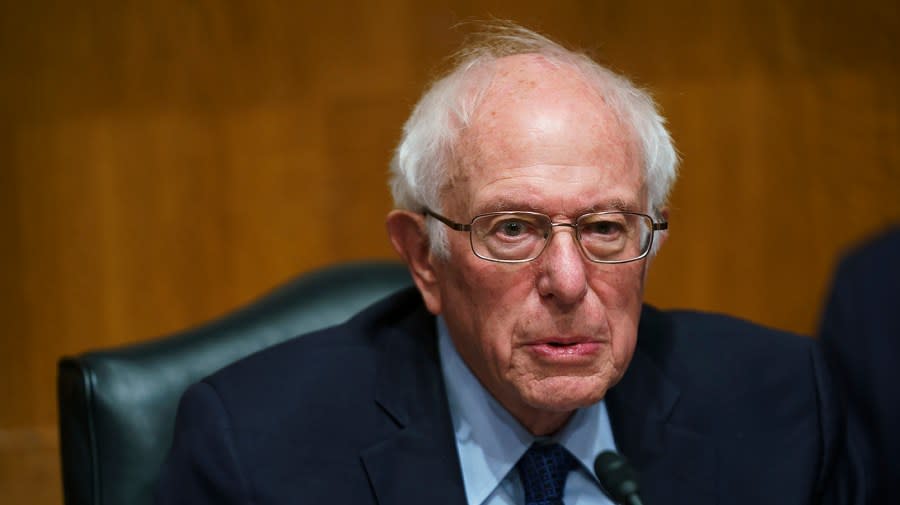Sanders, Democrats launch investigation into asthma inhaler pricing

- Oops!Something went wrong.Please try again later.
Sen. Bernie Sanders (I-Vt.) and a group of Senate Democrats on Monday announced an investigation into the high costs of asthma inhalers.
Sanders, chairman of the Senate Health, Education, Labor and Pensions (HELP) Committee, sent letters to the CEOs of the four biggest manufacturers of inhalers sold in the United States — AstraZeneca, Boehringer Ingelheim (BI), GlaxoSmithKline (GSK) and Teva — demanding information and documents on internal strategic communications, patient assistance programs and the costs involved in the manufacturing of inhalers.
The letters were co-signed by Sens. Tammy Baldwin (D-Wis.), Ben Ray Luján (D-N.M.) and Ed Markey (D-Mass.). The lawmakers noted that in the past five years, AstraZeneca, GSK and Teva made more than $25 billion in revenue from inhalers alone.
Like many other prescription drugs, the companies’ inhalers sell for hundreds of dollars in the U.S. but for only fractions of that same cost overseas. The companies charge between $200 and $600 each for inhaler products that are typically purchased monthly.
For example, one of AstraZeneca’s inhalers costs $645 in the U.S. but just $49 in the U.K. One of Boehringer Ingelheim’s inhalers costs $489 in the U.S. but just $7 in France. GSK’s popular Advair HFA costs $319 in the U.S. but just $26 in the U.K.
“As Chairman of the Senate HELP Committee, I am conducting an investigation into the efforts of these companies to pump up their profits by artificially inflating and manipulating the price of asthma inhalers that have been on the market for decades. The United States cannot continue to pay, by far, the highest prices in the world for prescription drugs,” Sanders said in a statement.
Tens of millions of Americans suffer from asthma and chronic obstructive pulmonary disease (COPD) and rely on inhalers to breathe — about 25 million Americans have asthma, and about 16 million people have COPD. Still, the high costs of inhalers often force people who have asthma and COPD to ration their use, if they are able to afford the devices at all.
In the letters, the senators said the people most likely to suffer from asthma and COPD are also the people least likely to be able to afford inhalers.
The senators accused the manufacturers of exploiting the regulatory system to ensure their products don’t face competition from generics, which can help drive down costs for patients.
“There is no reason for these products to be so expensive. The devices have been available since the 1950s and most of the drugs they use have been on the market for more than 25 years,” the lawmakers noted.
The Hill reached out to all four companies for comment. Teva and AstraZeneca did not respond.
In a statement, a GSK spokeswoman said the company is “committed to making our products broadly accessible to the patients who need them and we will work with the HELP Committee to address its concerns.”
A spokesman for BI noted that generic inhalers “are more costly and complicated to manufacture than pills and other small molecule drugs made by most generics companies,” so the government needs to do more to enable more manufacturers to enter the market.
The spokesman said executives “would appreciate the opportunity” to discuss policy solutions with Sanders and other HELP committee members.
BI also seemingly took a swipe at middlemen like pharmacy benefit managers for keeping prices high.
“Contrary to what is presented in the Health, Education, Labor and Pensions (HELP) Committee’s letter, on average, we provide discounts and rebates of 70 percent off the list price of our inhaler products to insurers, pharmacy benefits managers and other parties,” the spokesman said. “Unfortunately, these discounts rarely get passed along to the patient.”
Updated at 5:01 p.m.
For the latest news, weather, sports, and streaming video, head to The Hill.

